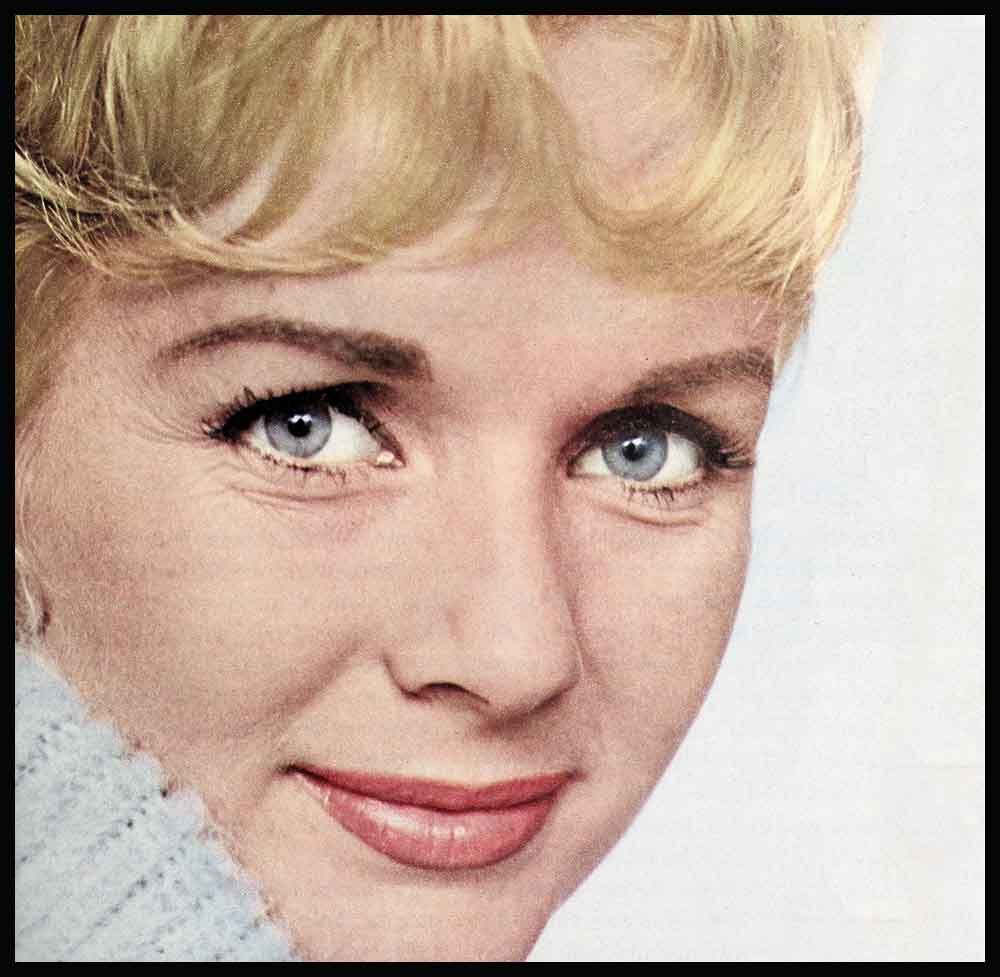
Debbie Reynolds Talks About
The threat was certainly there. Yet Debbie Reynolds pretended to ignore it. She acted as though nothing were wrong. As if her whole life were uncomplicated and there was nobody trying to break up her marriage.
She was in Houston, Texas, knocking them dead in the Continental Room of the Hotel Shamrock. Debbie loved the crowd’s applause and cheers for her song-and-dance and comedy routines. She was doing precisely what she wanted. She was fulfilling one of her two great ambitions in life.
“You know,” Debbie said reflectively, ‘I have two lives—and I have an ambition in each of those lives. My professional ambition is to be a comedienne. I am a comedienne, yet I haven’t had a chance to play nutty parts or out-and-out comedy roles. I’ve worked very hard at it and I love it. I want to concentrate just on comedy and I want to do all kinds, the type of sophisticated comedy Carole Lombard did as well as Lucille Ball’s type. My private ambition is to see my children grow up to be normal and happy and love Harry and me. I don’t want them to be mixed up, unhappy and complicated as so many other children of today. . . .”
AUDIO BOOK
Debbie spoke enthusiastically about her ambitions. Yet I could sense the hidden heartbreak even as Debbie talked glibly and glowingly about the children and husband Harry Karl. I could sense the inner turmoil through Debbie’s brave mask of courage in the f ace of the turbulence I knew was brewing. I wasn’t the only one aware of it. Many others were, too.
Call this trouble: “The Woman Who Is Trying To Break Up Debbie Reynold’s Marriage.” Call it just that.
Who is this woman, you ask? Well, let me describe her to you.
She is an ogre, evil and hideous in every respect. She is wicked, wretched, scornful. She would not hesitate an instant to stick a sharp stiletto in poor Debbie’s back. She’s done it before. And she is trying to do it again. It’s obvious she’ll stop at nothing.
Debbie should be terrified. She knows better than anyone what could happen to her. She’s felt the sharp, excruciating pain of a broken marriage once. She knows the heartache, the sorrow, the agonizing ordeal it can bring. It can really hurt.
Debbie should be terrified. But she isn’t. Thank goodness she had her guard up this time. So when The Woman began to slash stealthily at her two-year marriage to Harry Karl, Debbie was prepared to cope with the problem. Yet Debbie could not stop her from coming into the open with a whispering campaign.
For a long while, Debbie and Harry both ignored the talk about trouble in their marriage. They wouldn’t even dignify it with a denial. They were acting within their rights, certainly. Still there is a time when gossip must be met sternly, with a reply.
That was the way Debbie finally decided to handle it.
“I don’t know who started the talk, but I’m not afraid,” Debbie said quietly but firmly. “Perhaps it’s someone who has nothing better to do than make up stories. That doesn’t frighten me. People had a field day once before but they won’t have another. Let them talk. It can’t hurt me.”
Debbie was not going to strike back at The Woman, as I’ve chosen to label the creature who started the rumors. Nor had Debbie any desire to castigate or criticize her.
“All I can tell you about my marriage to Harry is that it’s forever,” said Debbie insistently, with dignity. “I went through one unfortunate marriage which didn’t work out. It won’t happen to me again because I am very, very lucky to have a man like Harry. He is a very good husband and wonderful, wonderful father to the children.”
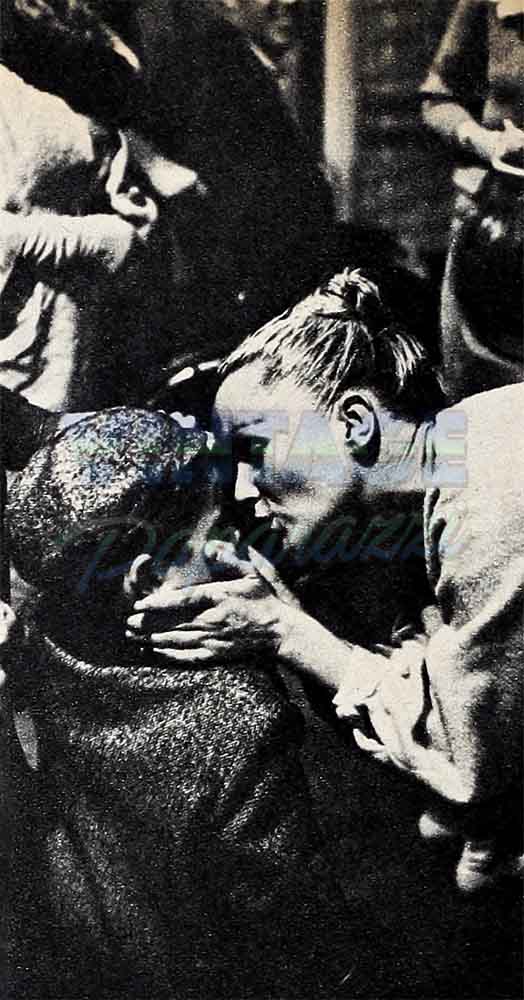
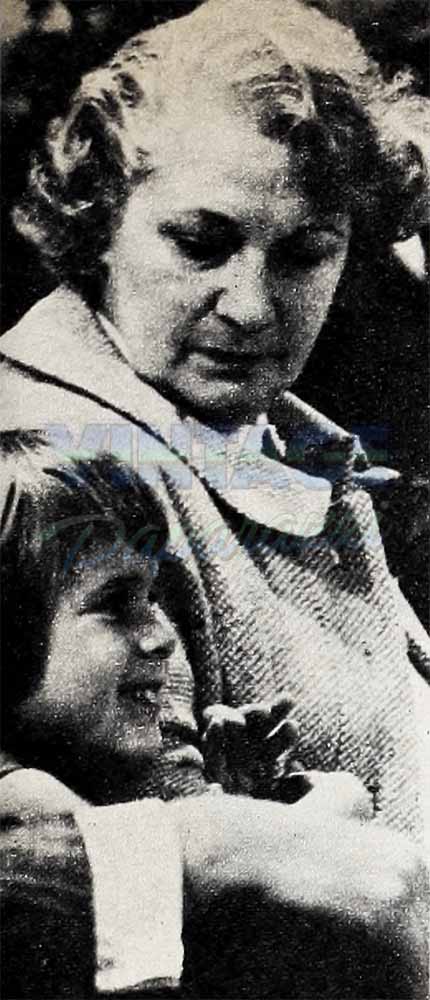
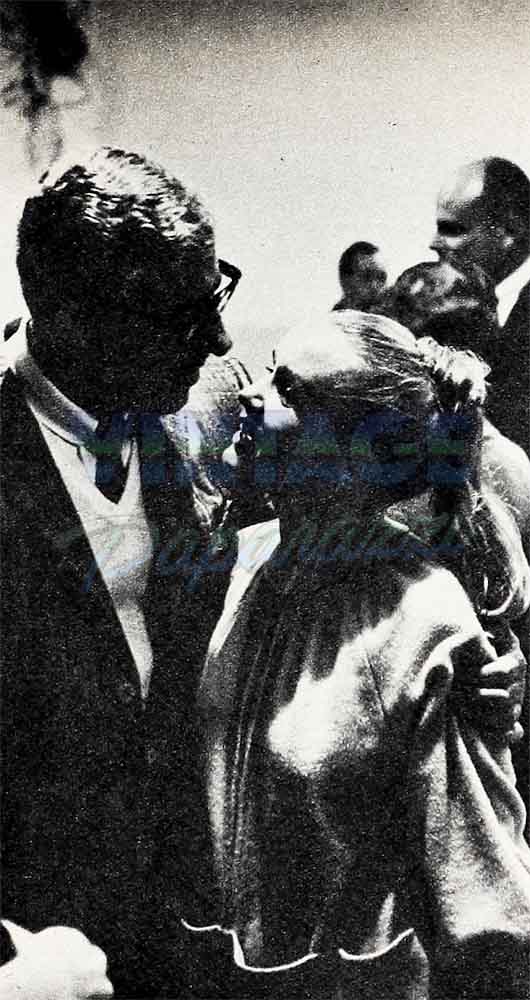
As I talked with Debbie I couldn’t help but feel that The Woman who was trying to break up her marriage again was now barking up the wrong tree. Yet I had to satisfy my curiosity about one thing: How did the rumors start in the first place?
Did The Woman have any grounds whatsoever in starting the tongues gabbling so virulently? Could it have been an argument Debbie had with Harry, perhaps in a restaurant, perhaps on a plane, perhaps backstage at one of her night club engagements?
Debbie paused in deep, careful thought.
“If there was an argument,” she finally sighed softly, “it was one I’ve forgotten—and I’m sure Harry has, too. What husband and wife don’t have a word between them at one time or another? I don’t think any couple can claim they haven’t exchanged a harsh word or two at some point in their marriage. But that isn’t an invitation to file for divorce. I think it’s ridiculous to discuss it.”
I thought it was ridiculous, too. I reached that conclusion the instant I asked Debbie about the eight children Harry told me he and Debbie wanted.
Debbie laughed. It was as if she were saying, “How on earth did you get Harry to let you in on our private secret?”
“That’s right,” she whispered, with surprise still seeming to hang on her words. “We have it all figured out. I have two children from my first marriage, Harry has four—and we’re going to have two more. That’ll make eight.”
It was not long ago that Debbie suffered a miscarriage almost at the end of her pregnancy. The tragic experience had prompted some of Debbie’s detractors to criticize her. They said she had worked too hard, pushed too much when she should have taken it easy. They said that the pressure of working before the blinding, blazing kleig lights of Hollywood sound stages was too arduous for someone in Debbie’s condition.
Debbie had listened to the criticisms without losing her temper, without anger at those who hinted she might have done something wrong. Tragic though it was, the loss of her unborn infant had nothing to do with the nature or fervor of her activities. During her earlier pregnancies, she had faced life each day with the same vibrant vitality, and, of course, her children were born normal and healthy.
The full impact of her loss still lingers in the recesses of her heart. But she bears up under it well and, perhaps because of the loss, is determined more than ever to give Harry the children they both want so dearly.
Harry, as we all know, has been publicly profuse a number of times about his deep desire to have children with Debbie. And it is more than likely that is what prompted the first despicable rumor of a marital rift between Harry and Debbie.
After the infant’s death, Harry Karl was gripped by despair and grief. But The Woman, in the quagmire of her deformed mind, could not see Harry’s true feelings. Instead, as if looking at a mirror in a house of horrors, she saw not Harry’s genuine disconsolation but, instead, her own unbelievable invention—impatience, anger, and maybe even loathing of Debbie.
How does The Woman find out so many personal things about Debbie and Harry? How can she be everywhere? Very easily. For instance, Debbie goes into an exclusive shop to buy a hat. One of her first public ventures since her miscarriage. Harry is with her because she values his opinion. She absolutely falls in love with a concoction of pink tulle and rosebuds, but Harry thinks it looks “silly.” And says so. Now the shop, though high-priced, is not a private salon; anyone else may be there—and besides, this time The Woman may be there, listening, in the guise of a saleswoman, perhaps. With malicious glee, she delights in phoning the gossip columnists. It is her important moment! She has some exclusive dirt to tell! Result: Harry’s mild criticism of the fancy hat comes out as his comment that Debbie should act her age. And in another column as, “Debbie Reynolds and hubby Harry Karl are having words again. Don’t be surprised to hear an announcement from them soon.”
Nothing could be more ludicrous. Just shortly after the heartbreak of losing their baby, I talked to Harry myself. He spoke only of his love and admiration for Debbie, and his plans to bring her whatever happiness he could.
“Well, for one thing,” he said with determination, “more children. She’s a perfect mother and nothing would make her happier. She’s a remarkable girl. What we want is to have eight children. I have four. Debbie has two. And we want two together.
“And it’s perfectly all right for her to go on and have as many children as she wants, you know. Sure, Debbie is a very active girl, but that had nothing to do with the loss of the baby. The doctors assured us of that. They also assured us that there were no complications because of the loss and that if we want, we can go ahead and have a whole houseful of more children.”
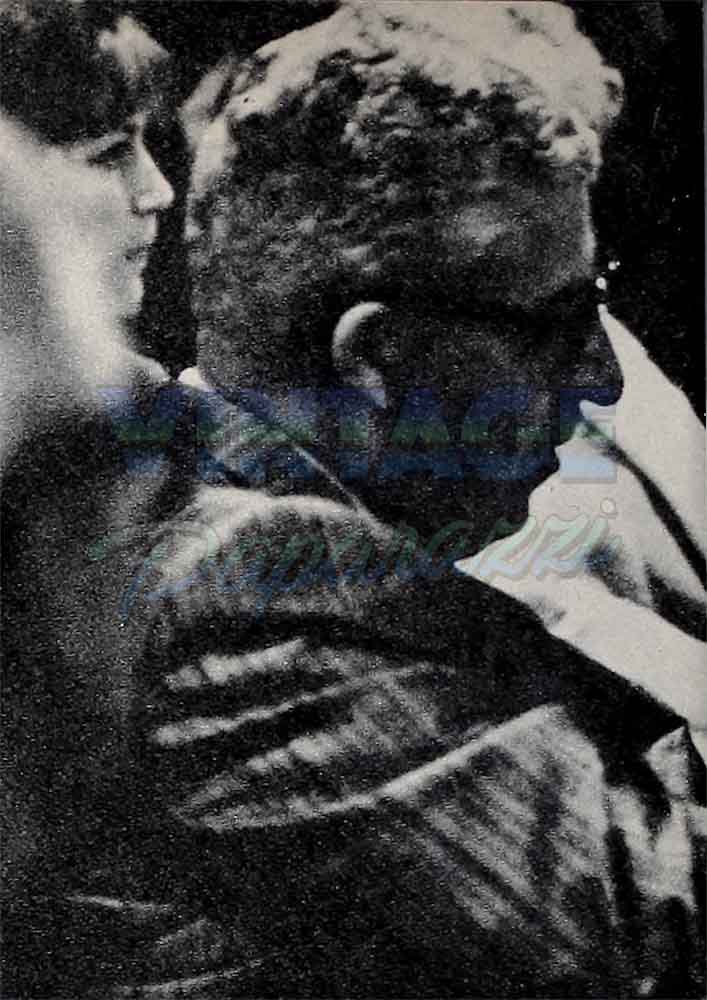
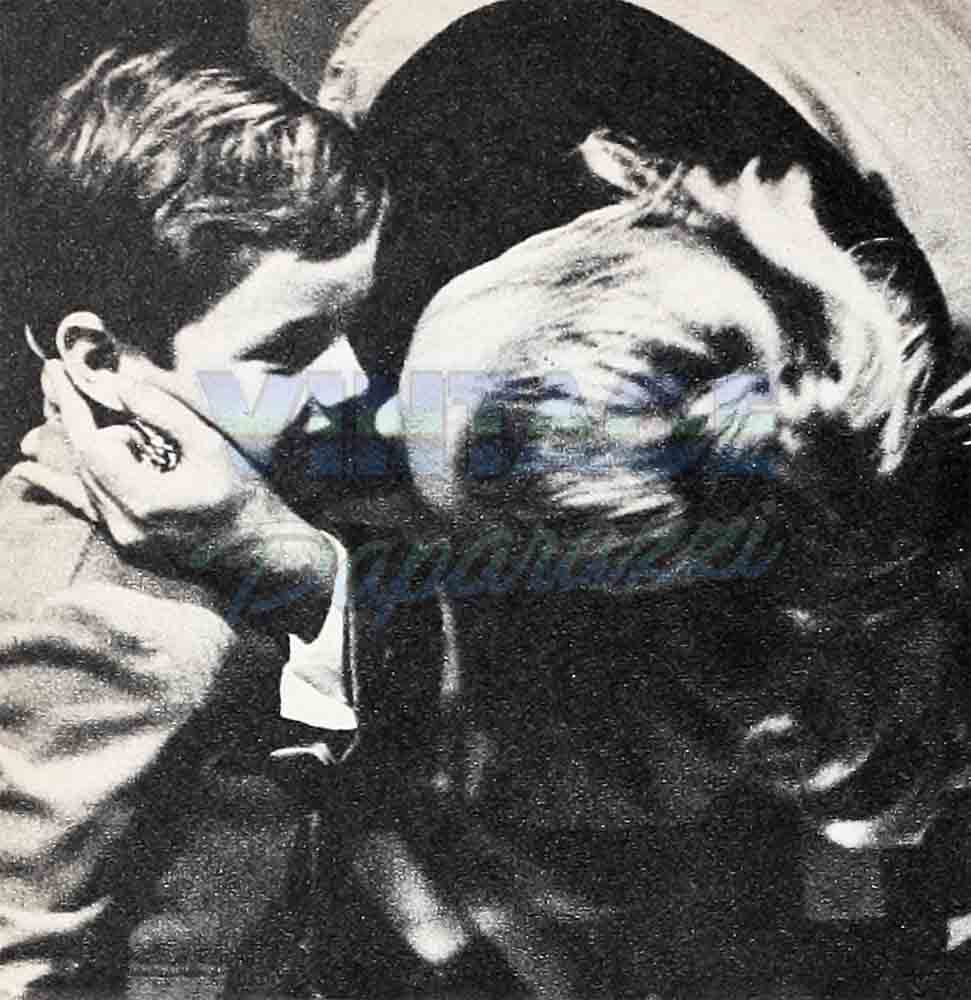
There probably isn’t a likelier couple in the land better equipped temperamentally to handle a houseful of scampering, chattering, noisy, busy. happy children. Because as active and vital as Debbie is in her craft, Harry is just as much so in his own vast undertaking.
As head of a shoe manufacturing and retailing empire, Harry Karl is a human dynamo, spanning continents at the drop of a hat, dealing in a dozen enterprises simultaneously and always ready for more. Even as I talked with him, he was cleaning up details on his latest venture.
“We’ve just opened another fifty Stores.” he said with pride in his voice.
Debbie’s determination to give her children the protection and security of a healthy, enduring marriage runs very deep. As we talked it became manifestly clear to me that her most profound happiness is as a wife and mother—”my private ambition,” as she calls it.
“We do everything together,” she said contentedly. “And Harry is a pure joy to the children—so kind, so gentle, so understanding. He makes sure that the children are along any time we go different places and do different things. He’s absolutely crazy about Todd and Carrie, and believe me they’re just as wild over their new daddy.
“We spend as much time as we can with them. I myself never let working schedules interfere with my relationships with the kids. I’m with Todd and Carrie much more than the average working mother. and I’ll bet a lot more than even mothers who don’t work—who have nothing to do but stay home and raise a family. To me there’s 110 such thing as spending too much time with your children.”
Inevitably the talk turned to Todd’s and Carrie’s real father Eddie Fisher. Debbie understands Eddie’s sense of loss in having to give up the children and does nothing to alienate Todd and Carrie from their father. When possible. she tries to allow a normal father-and-child relationship to develop between Eddie and the youngsters, even if it means taking part in the reunion herself.
Not too long ago, after he left Rome to Liz Taylor and Richard Burton, Eddie came to Hollywood to visit the children. He offered to take them to Disneyland. They were thrilled but insisted that Mommy go along, too.
Eddie and Debbie glanced at each other—and nodded agreement. Off they traipsed, concealing whatever private emotions they had in order to present a picture of amiability and normalcy to what was a rather difficult situation.
And so. appearing for all the world like the loving husband and wife they once were. they took Todd and Carrie to the wonder-filled fantasy world of Disneyland, laughing, going on rides, eating cotton candy. Perhaps it was that innocent afternoon that was so gleefully and maliciously distorted by that everlasting peril to peace and to decent privacy—The Woman.
Was she there lurking in a crowd, almost tasting the scandal she could scarcely wait to spit out to all who would listen? Was hers the ever-present sick mind that always has and will forever insinuate some unfounded wickedness into such guileless pleasure?
No one can say for certain. Yet a short time afterward, a dark rumor began circulating that Debbie was “tired” and “disenchanted” with Harry. The Woman didn’t stop there. Soon the thick black lie was heard that Debbie was actually “courting” Eddie, hoping to win him back. Then came the talk of an “imminent reconciliation” with Eddie and, finally, the grotesque charade of a stewing, fuming, furious Harry Karl, white with rage at his treasonous bride. Imaginations ran riot.

The Woman had certainly done a day’s work, hut in the end time exposed it for what it really was. A packet of vicious. empty lies. Lies that really had been doomed from the beginning. For Harry Karl is a sensitive, intelligent man. He realizes that no one can ever wholly estrange a child from his natural father, regardless of the circumstances that keep them separated. Nor should they be estranged. Eddie Fisher is Todd’s and Carrie’s father. He should—and will—continue to see them.
That means Eddie and Debbie will necessarily be thrown together occasionally in the years to come. But because of Harry’s deep and abiding faith in Debbie, and of her own deep warmth and love for him, both know that neither Eddie nor anyone can ever come between them.
Despite the malevolent gossip, Harry and Debbie look forward eagerly to the fulfillment of the happy years ahead. Not that they aren’t aware of certain obstacles. They do exist. They’d have to, in a family where the husband is a dynamic millionaire businessman and the mother a world-famous actress. But both have the temperament to recognize the obstacles and overcome them.
We were concluding our talk. Debbie and I, when she said reflectively: “I know I live in a goldfish bowl, but that’s the price you have to pay in t his business. But I’m not tired of it. If I were, I’d get out. When I was very young, I’d walk down the street and no one would look at me. Now it’s different. People come up to me all the time and they see me, dressed up as I am. I don’t scrounge around as I used to, in slacks and pedal pushers.
“Most people are very polite. They just look at me. They see me and they either like me or don’t like me. Sometimes I can hear them whisper about me. They don’t know I can hear them. If they say anything had. I have to take it as part of show business. It’s taken a long time and I’m still not used to it.”
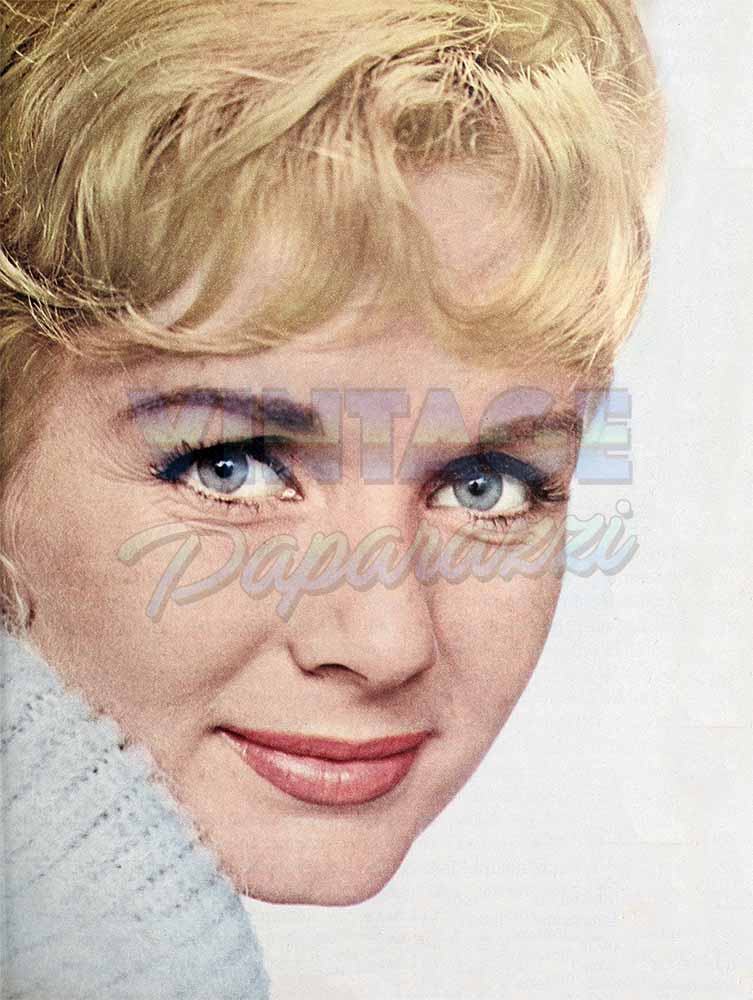
Maybe Debbie never really will become accustomed to inhabiting a “goldfish bowl.” But experience, some of it bitter, has taught her to endure it. Few people, men or women, were ever exposed to so harsh a public spotlight as Debbie Reynolds during those torturous days when her marriage with Eddie Fisher first collapsed and later, with Elizabeth Taylor playing the siren role, disintegrated completely. They were agonizing, merciless, humiliating days for Debbie. But from them she emerged with a new and valuable wisdom. Never again would she allow her private life to stand naked before the world. She is determined that her marriage with Harry Karl will retain the priceless intimacy so vital for lasting peace and happiness.
She may achieve it. Yet she may not. One person looms forever as a threat to that treasured privacy Debbie wants so desperately—The Woman who is trying to break up Debbie Reynolds’ marriage!
I couldn’t help pondering about The Woman. I saw in her the eternal danger, and I mentioned my thoughts to Debbie. She understood completely.
Like any celebrity, Debbie Reynolds knows that somewhere, in some nameless place, that faceless phantom I call The Woman was unquestionably helping to spread the deadly poison of gossip.
She has no name. Or perhaps more precisely she goes under ten thousand names. She is the narrow, thoughtless, often deliberately cruel failure who, forlorn in the knowledge of her own life’s emptiness, finds a twisted pleasure in destroying someone else’s happiness.
She is the housewife, imprisoned in her workaday drudgery, who through idle gossip about the famed and the celebrated, receives a vicarious shot in the arm.
She is the teenager, the secretary, the receptionist, the nurse, even teacher, who overhears some fragment of fact—or fancy—and casually passes it along to friend or fellow worker, where it becomes the link in a vicious chain that ultimately wraps itself around the throat of the victim.
The Woman, then, is really every woman—every woman who either wantonly or unwittingly sets about to ruin, taint or tarnish another’s life.
She is a sick woman, an endless feeder of venom out of her own loveless life. Strangely enough, The Woman is sometimes not that at all, but instead a man. equally sick and probably devoid of all masculine virility. But almost always, of course, the gossip-monger is a woman—The Woman.
Gossip is her status Symbol. With gossip she becomes, in her own unseeing eyes, more important. With gossip she feels the thrill, however small, of power. With gossip she is someone to conjure with. With gossip she becomes The Woman.
As we talked in Houston, Debbie Reynolds understood—understood that her own happiness was now under assault because of that nameless, shapeless danger.
And because she understood, she had no fear.
—GEORCE CAMBER
See Debbie in M-G-M’s “How The West I Was Won,” and “My Six Loves,” Par.
It is a quote. PHOTOPLAY MAGAZINE APRIL 1963
AUDIO BOOK




